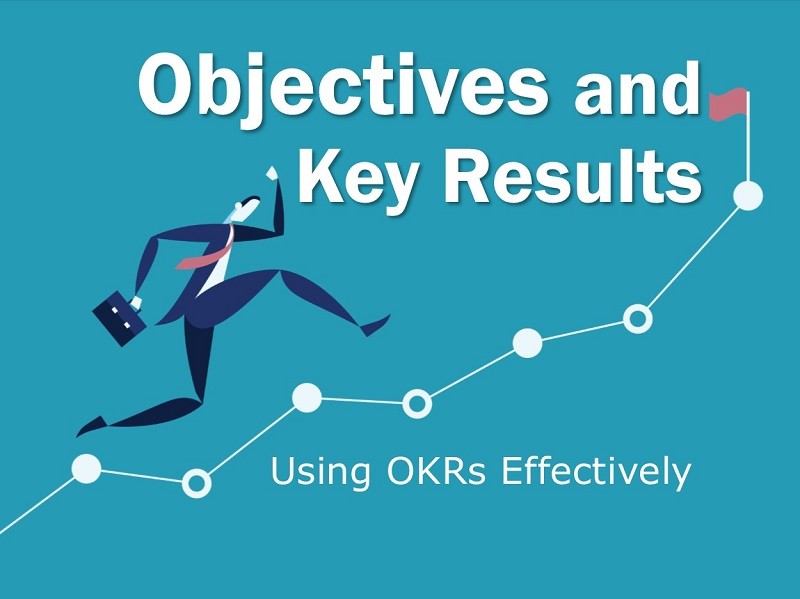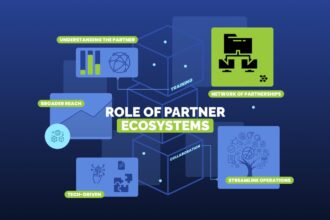Objectives and Key Results (OKRs) for Tech Departments
In Nigeria’s rapidly growing tech ecosystem, aligning engineering, product, and marketing teams is critical for driving innovation and achieving business success. Objectives and Key Results (OKRs) provide a powerful framework to unify these departments around shared goals, ensuring that technical execution, product development, and market strategies work in harmony. This blog explores how Nigerian tech companies can leverage OKRs to foster collaboration, prioritize impactful initiatives, and navigate the unique challenges of the local market.
- Objectives and Key Results (OKRs) for Tech Departments
- Why OKRs Matter for Nigerian Tech Companies
- Challenges in Aligning Engineering, Product, and Marketing
- Setting Effective OKRs for Tech Departments
- OKR Examples for Nigerian Tech Companies
- Best Practices for Implementation
- Overcoming Common Pitfalls
- Conclusion
Why OKRs Matter for Nigerian Tech Companies
Nigeria’s tech sector faces unique challenges, including limited resources, rapidly changing consumer preferences, and infrastructure constraints. OKRs help address these by:
- Creating Clarity and Alignment: OKRs ensure that engineering, product, and marketing teams understand how their efforts contribute to overarching business goals, reducing silos.
- Focusing on High-Impact Goals: With resource constraints, OKRs prioritize initiatives that deliver measurable value, such as user growth or system reliability.
- Adapting to Market Dynamics: Nigeria’s diverse market demands agility. OKRs enable teams to track progress and pivot quickly in response to customer feedback or economic shifts.
- Fostering Collaboration: By setting shared objectives, OKRs encourage cross-departmental teamwork, ensuring marketing campaigns align with product launches and engineering capabilities.
Challenges in Aligning Engineering, Product, and Marketing
Before diving into OKR examples, it’s important to recognize common misalignment issues in Nigerian tech companies:
- Engineering vs. Product Priorities: Engineering teams often focus on technical scalability (e.g., handling Nigeria’s intermittent internet connectivity), while product teams prioritize user-facing features.
- Marketing Disconnect: Marketing may promote features that engineering hasn’t fully developed, leading to customer dissatisfaction.
- Resource Constraints: Limited budgets and talent shortages force teams to compete for resources, creating friction.
- Cultural and Market Nuances: Nigeria’s diverse consumer base requires tailored products and campaigns, which can complicate alignment.
OKRs bridge these gaps by providing a shared language and measurable outcomes that align all teams toward common objectives.
Setting Effective OKRs for Tech Departments
To create OKRs that align engineering, product, and marketing in Nigerian tech companies, follow these steps:
- Start with Company-Wide Objectives: Align OKRs with the company’s strategic goals, such as increasing market share in Nigeria’s fintech sector or improving user retention in an e-commerce platform.
- Involve All Departments: Collaboratively define OKRs to ensure buy-in from engineering, product, and marketing. For example, a Lagos-based startup might involve team leads in a workshop to set quarterly OKRs.
- Focus on Measurable Outcomes: Key Results should be quantifiable and tied to business impact, such as “Increase monthly active users by 20%” or “Reduce app load time by 30%.”
- Account for Local Context: Consider Nigeria-specific factors, like mobile-first user behavior or payment system integration (e.g., Paystack or Flutterwave).
- Review and Iterate: Conduct bi-weekly or monthly check-ins to track progress, especially in Nigeria’s fast-paced market, where consumer trends shift rapidly.
OKR Examples for Nigerian Tech Companies
Below are sample OKRs tailored for Nigerian tech companies, aligning engineering, product, and marketing efforts:
Objective 1: Enhance User Experience for a Mobile-First Audience
- Key Result (Engineering): Reduce app load time to under 2 seconds on 3G networks for 95% of users.
- Key Result (Product): Launch a simplified onboarding flow, increasing user sign-up completion rate by 25%.
- Key Result (Marketing): Create a campaign targeting Gen Z users in Lagos and Abuja, driving 10,000 new downloads in Q1.
Why It Works: This OKR addresses Nigeria’s mobile-first market, where users rely on low-bandwidth networks. Engineering focuses on performance, product streamlines usability, and marketing targets key demographics.
Objective 2: Increase Revenue Through Localized Payment Solutions
- Key Result (Engineering): Integrate Paystack and Flutterwave APIs, achieving 99.9% transaction success rate.
- Key Result (Product): Introduce a “Pay Later” feature, increasing purchase completion by 15%.
- Key Result (Marketing): Launch a social media campaign promoting the new payment options, reaching 500,000 impressions across Instagram and Twitter (X).
Why It Works: Payment solutions are critical in Nigeria, where trust and accessibility drive adoption. This OKR aligns technical integration, product innovation, and marketing outreach.
Objective 3: Improve Platform Reliability for Scalability
- Key Result (Engineering): Reduce system downtime to less than 0.1% per month, ensuring uptime during peak usage (e.g., Black Friday sales).
- Key Result (Product): Implement user feedback surveys, achieving a Net Promoter Score (NPS) of 50 or higher.
- Key Result (Marketing): Develop a case study showcasing platform reliability, generating 5,000 website visits from tech blogs.
Why It Works: Reliability is crucial for user trust in Nigeria’s competitive tech landscape. This OKR ensures engineering stability supports product improvements and marketing narratives.
Best Practices for Implementation
- Communicate Clearly: Use tools like Slack or Notion to share OKRs across teams, ensuring transparency in a remote or hybrid work environment common in Nigerian startups.
- Leverage Local Talent: Engage Nigeria’s growing pool of developers and marketers to tailor OKRs to local needs, such as supporting Pidgin English in user interfaces.
- Track Progress Visually: Use dashboards (e.g., Trello or Jira) to monitor Key Results, helping teams stay accountable.
- Celebrate Wins: Recognize achievements, like hitting a user growth target, to boost morale in Nigeria’s high-pressure startup culture.
Overcoming Common Pitfalls
- Avoid Overloading OKRs: Limit each department to 2–3 objectives per quarter to maintain focus, especially in resource-constrained Nigerian companies.
- Balance Ambition and Realism: Set stretch goals (e.g., 20% user growth) but ensure they’re achievable within Nigeria’s infrastructural limits.
- Prevent Silos: Regularly sync engineering, product, and marketing teams through joint OKR reviews to avoid misaligned priorities.
- Adapt to Feedback: Use customer insights from Nigeria’s diverse markets (e.g., urban vs. rural users) to refine OKRs mid-cycle if needed.
Check out: Building a Resilient Multi-CDN Strategy for Nigerian Streaming Services
Conclusion
OKRs are a game-changer for Nigerian tech companies striving to align engineering, product, and marketing teams. By setting clear, measurable, and locally relevant goals, companies can navigate Nigeria’s dynamic market, drive innovation, and deliver value to users. Whether you’re a fintech startup in Lagos or an e-commerce platform in Abuja, OKRs can unify your teams and propel your business forward. Start small, iterate often, and watch your departments transform into a cohesive, impact-driven force.





